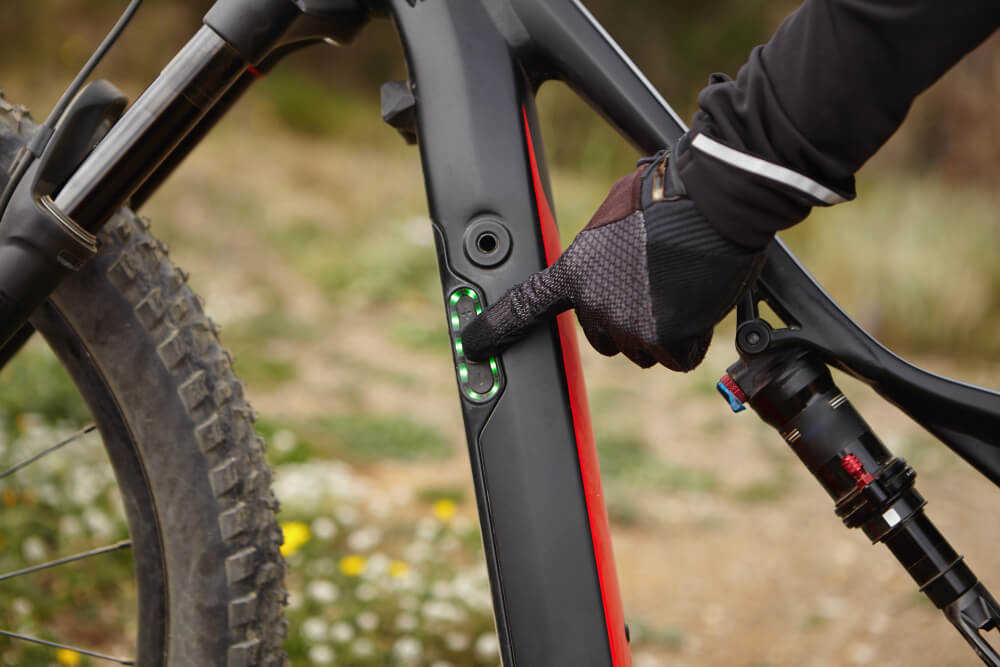If you’re thinking about buying an electric bicycle—or already have one—you’ve probably asked yourself: How far do e-bikes go on one battery?
Table of Contents:
If you’re thinking about buying an electric bicycle – or already have one – you’ve probably asked yourself: How far do e-bikes go on one battery?
At first glance, it appears to be a simple question. Check the product description, right? Well, not exactly. The truth is that many factors influence the range of your electric bike per charge.
In this article, you’ll learn:
- What is the average electric bike range per charge
- Why battery capacity and type matter
- How far do e-bikes go on one battery in real-world conditions
- The top bike distance per charge factors
- How weather, tire pressure, and riding style can help or hurt your range
What Is the Electric Bike Range Per Charge?
The electric bike range per charge is the total real-world distance an e-bike can travel on a single full battery. But it’s not a fixed number – it varies depending on the battery, bike model, riding habits, and terrain.
- Entry-level e-bikes: 20–30 miles (32–48 km)
- High-end models: up to 70–100+ miles (113–160 km) under ideal conditions
Remember: Manufacturer-stated ranges are tested in lab-like conditions, which are rarely replicated in everyday riding. Expect your distance to be lower unless you optimize your riding technique.
How Far Do E-Bikes Go on One Battery in the Real World?
So, how far do e-bikes go on one battery? You can expect a range of 25–70 miles (40-112 km) per charge, depending on battery capacity and motor efficiency. But that’s only part of the story.
Other factors, such as terrain, rider weight, tire pressure, and assist level, can also impact this number. Competent riders who plan their routes and riding style wisely will always get more mileage from each charge.
Bike Distance Per Charge Factors: What Affects Your Range?
Knowing the bike distance per charge factors is the key to getting the most out of your e-bike. Below are the main variables that impact your range.
1. Battery Capacity (Wh)
The most essential factor is battery size, measured in watt-hours (Wh).
- A 500Wh battery will give you 40–50 miles (64-80 km)
- A 750Wh battery will give you 60–70+ miles (96-112+ km) if used efficiently
Choose the right battery for your riding style – daily commutes, long trails, or weekend city trips.
2. Motor Power and Efficiency
A powerful motor (like 750W) will improve acceleration and hill climbing, but consumes more power. An efficient motor, combined with active pedaling, will give you an impressive range, especially in eco or low-assist mode.
3. Rider Weight and Cargo
The more you weigh, the more the motor works.
Carrying cargo or a heavy backpack uses more energy and reduces range.
Travel light when possible to conserve battery.
4. Terrain and Elevation
Flat terrain consumes less energy, while hills require more power, especially when climbing.
If your route has many elevation changes, expect a shorter range even with a big battery.
5. Riding Speed
The faster you ride, the greater the wind resistance becomes, and the more work is put onto the motor.
Slower, consistent speeds are more efficient and will extend your range.
6. Weather Conditions
Extreme temperatures (hot or cold), strong winds, and humidity all affect battery efficiency.
Batteries have optimal temperature ranges, typically 60–80°F (15–27°C), for most types of batteries.
If you’re riding in winter or strong winds, expect reduced performance unless you plan for it.
7. Tire Pressure and Tire Type
Underinflated tires increase rolling resistance.Keep your tires properly inflated to reduce friction and get more efficiency.
Even on human-powered bikes, proper pressure makes a big difference – and with e-bikes, it stretches every watt-hour.
Always follow the recommended guidelines for using your battery. These include optimal temperature ranges, the use of battery covers, maintenance tips, and other relevant information.
Read also: How to cover and protect an E-Bike battery
What does “range per charge” mean for an e‑bike?
What is a realistic range for e‑bikes under everyday conditions?
What factors most affect how far an e‑bike can go on a single charge?
About the Author
EMBS
Leading manufacturer of advanced battery systems with a market presence of over 25 years. We specialise in rechargeable lithium-ion batteries, producing a wide range of systems with varying power and capacity.
